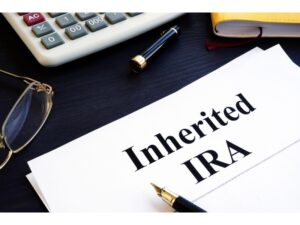When it comes to planning for retirement, many people think about traditional investment options like stocks and bonds. However, there’s a lesser-known but powerful tool in the world of retirement savings—real estate investments with a self-directed IRA. This unique approach allows you to diversify your retirement portfolio by investing in properties, from residential homes to commercial spaces. But like any investment strategy, it comes with its own set of pros and cons.
Pros of Real Estate Investments With A Self-Directed IRA
Diversification: One of the most significant benefits of real estate investments in a self-directed IRA is portfolio diversification. Adding real estate to your retirement holdings can spread risk and potentially increase your returns.
Diversification is a fundamental principle of investment strategy. It involves spreading investments across diverse asset classes to reduce the overall risk of your portfolio. When you rely solely on traditional investments like stocks and bonds, your retirement savings can be vulnerable to market fluctuations. However, real estate offers a unique opportunity to diversify your holdings.
Real estate investments behave differently from stocks and bonds. While the stock market can experience rapid ups and downs, real estate tends to be more stable and has the potential for steady, long-term growth. By including real estate in your self-directed IRA, you can reduce the overall volatility of your retirement portfolio.
Furthermore, diversifying with real estate can provide income through rental payments, which can be especially beneficial during retirement. This income stream can act as a cushion against market downturns, ensuring you have a consistent source of funds.
Tax Advantages: Self-directed IRAs offer tax advantages similar to traditional IRAs. You can enjoy tax-deferred growth and, in some cases, tax-free withdrawals during retirement.
Tax deferral is a significant advantage of self-directed IRAs. When you earn income from your real estate investments within the IRA, you won’t have to pay taxes until you withdraw. This allows your investments to grow more efficiently over time because you’re not losing a portion of your returns to taxes each year.
You may even enjoy tax-free withdrawals during retirement if you meet certain criteria. For example, if you have a Roth self-directed IRA and meet the required holding period and age, your withdrawals can be tax-free. This can result in substantial savings and a more tax-efficient retirement income stream.
Additionally, self-directed IRAs offer potential tax deductions for expenses related to your real estate investments, such as property management fees and maintenance costs. These deductions can further reduce your overall tax liability, making your investments more profitable.
Alternative Investment: Real estate investments provide an alternative to traditional assets like stocks and bonds. This can be especially attractive when you want to protect your portfolio from market volatility.
Traditional investments like stocks and bonds are susceptible to market fluctuations. When uncertain economic conditions, these assets can experience significant value swings, potentially risking your retirement savings. Real estate, on the other hand, tends to be less correlated with stock market movements.
Cons of Real Estate Investments in Self-directed IRAs
Complexity: Investing in real estate within a self-directed IRA can be complex. You must follow IRS rules and regulations carefully, which may require professional guidance.
While investing in real estate within a self-directed IRA can be enticing, it’s essential to understand that it comes with complexity. The IRS has specific rules and regulations governing self-directed IRAs to ensure they comply with tax laws. Failure to follow these rules can result in penalties, taxes, or disqualification of the IRA.
Investors must navigate intricate IRS guidelines, such as restrictions on transactions with disqualified persons (such as family members) and prohibited investments. Complying with these rules requires understanding tax law and retirement account regulations. Many investors find it beneficial to seek professional guidance from tax advisors or financial experts specializing in self-directed IRAs.
Moreover, real estate investments involve various legal and financial considerations, such as property ownership, title issues, and potential liabilities. Ensuring that your self-directed IRA adheres to these complexities is crucial to avoid costly mistakes.
Liquidity Challenges: Real estate investments are not liquid assets. If you need to access your IRA funds quickly, selling a property can be time-consuming and may result in losses.
Unlike stocks or bonds, which can be sold on a public exchange relatively easily, real estate investments are illiquid. When you invest in a property within your self-directed IRA, selling that property can be time-consuming. Finding a suitable buyer, negotiating a deal, and completing the transaction may take weeks or even months.
Management and Costs: Owning real estate in an IRA involves property management responsibilities and associated costs. These include property taxes, maintenance, and potential management fees.
Owning real estate within a self-directed IRA means taking on property management responsibilities. This includes finding and screening tenants, collecting rent, handling maintenance and repairs, and ensuring compliance with local regulations. While some investors enjoy managing their properties, others may find it burdensome, especially if they need more experience in real estate management.
Additionally, there are associated costs with owning real estate, such as property taxes, insurance, and maintenance expenses. These costs can impact the overall return on your investment and should be factored into your investment strategy.
Unlock the Potential of Your Self-directed IRA with Nevada Trust Company®
Are you ready to take control of your retirement investments? At Nevada Trust Company®, we specialize in empowering individuals like you to maximize the benefits of self-directed IRAs. Discover the freedom to diversify your portfolio, including real estate investments, while enjoying tax advantages. Our team of experts will guide you every step of the way, ensuring compliance with IRS regulations and helping you navigate the complexities.





